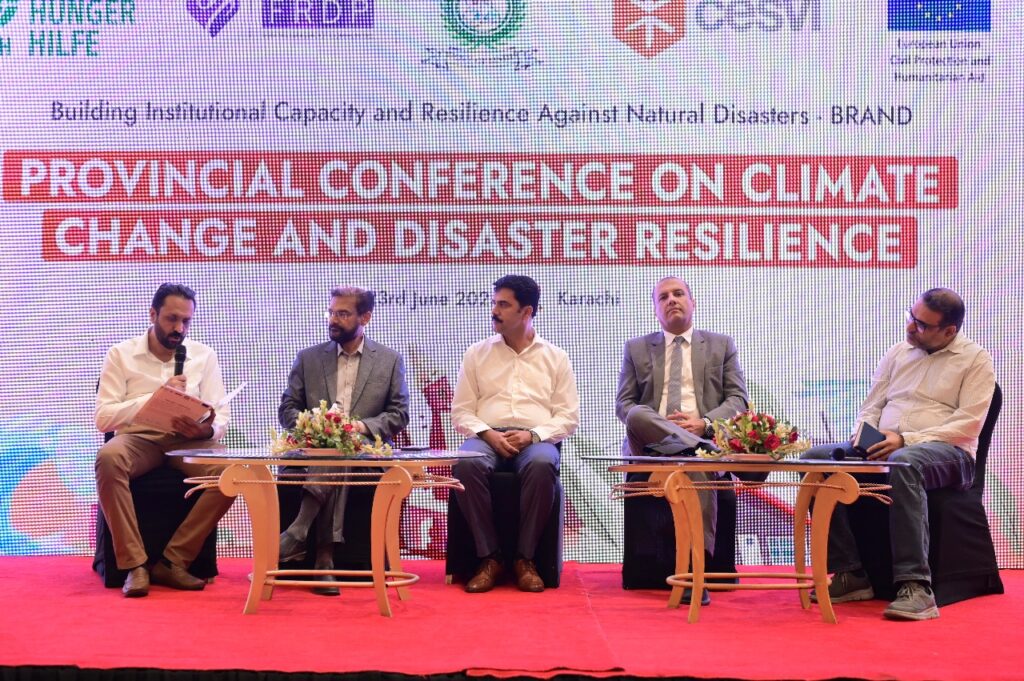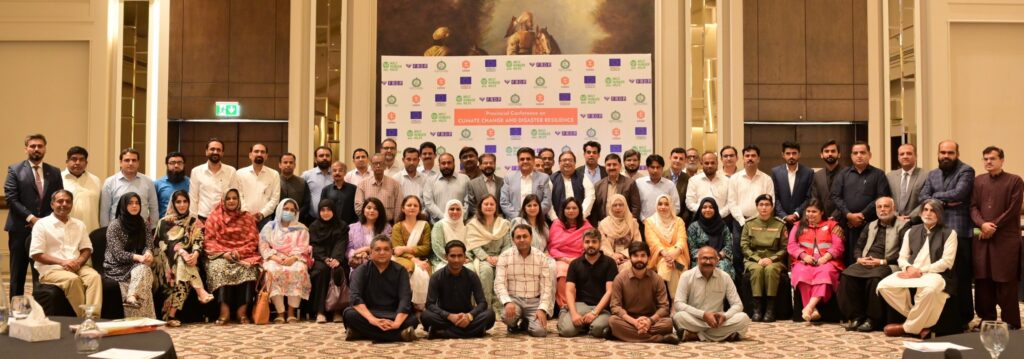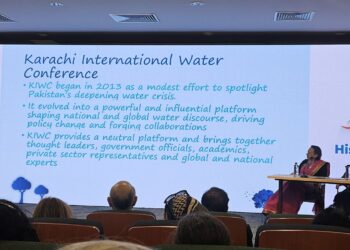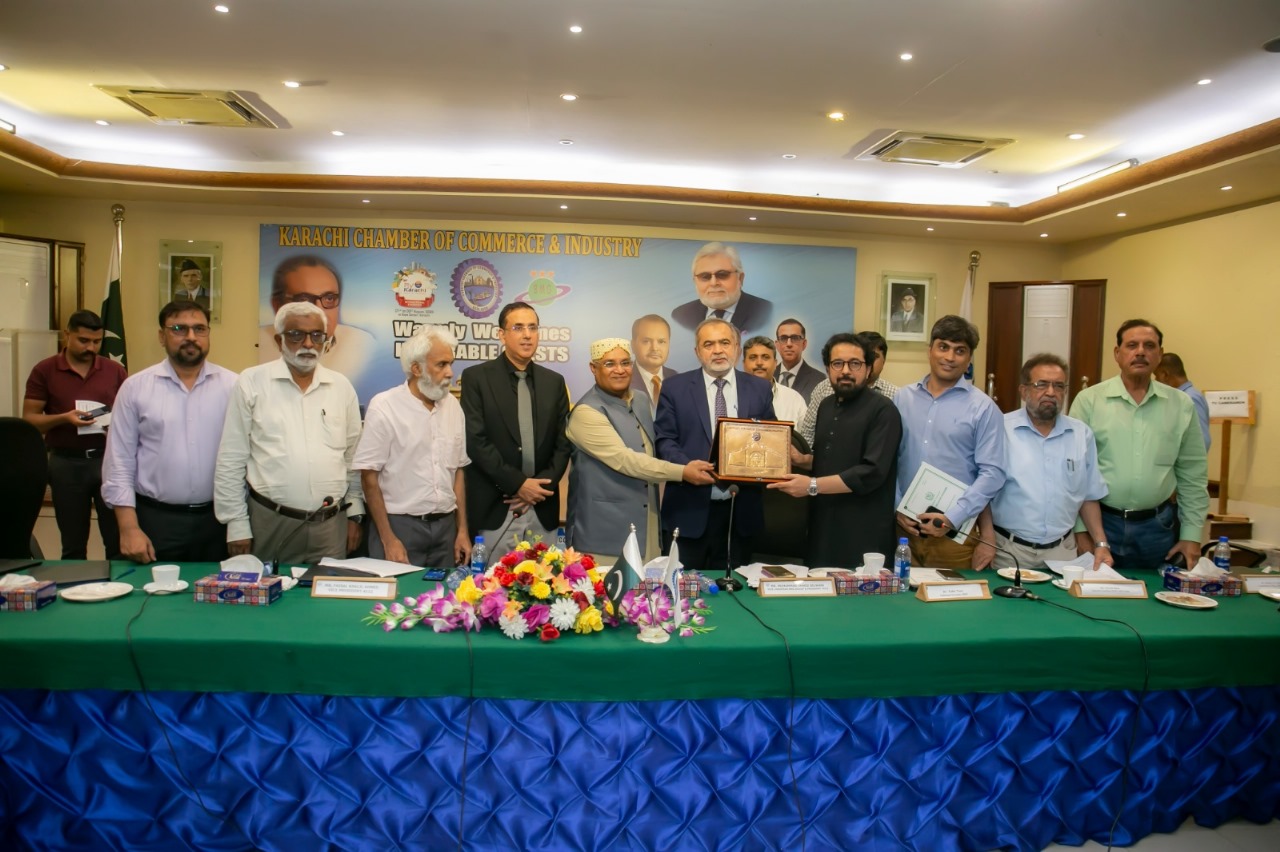The conference brought together government
officials, academics, civil society leaders, media
UN agencies, and development partners
Staff Reporter

Karachi: The Provincial Conference on Climate Change and Disaster Resilience was successfully held today at Marriott Hotel Karachi, highlighting the urgent need for climate action in one of Pakistan’s most vulnerable regions. The event was organized by CESVI Pakistan in collaboration with Welthungerhilfe (WHH), Fast Rural Development Program (FRDP), and the Provincial Disaster Management Authority (PDMA) Sindh, under the ECHO-funded BRAND Project consortium.
Stakeholders Unite for Climate Resilience
The conference brought together government officials, academics, civil society leaders, media representatives, UN agencies, and development partners. It served as a timely platform to address Sindh’s growing exposure to climate change impacts and strengthen disaster preparedness at the provincial level.
A key highlight was the launch of a new research study titled “Climate-Smart Agriculture as a Disaster Risk Reduction Strategy in Vulnerable Regions of Sindh, Pakistan: A Multi-District Comparative Analysis.” Conducted by academic experts, the study emphasizes how adopting climate-smart agricultural practices can reduce disaster risks, improve food security, and promote sustainable development across high-risk districts in Sindh.

Scientific Insights and Government Commitments
In a technical session, the Chief Meteorologist of the Pakistan Meteorological Department (PMD) presented climate projections for Sindh. The forecast warned of increasing temperatures, water shortages, and erratic rainfall patterns—highlighting the province’s climate-sensitive future and its economic and social consequences.
Speaking at the event, Aisha Jamshed, Country Director of Welthungerhilfe, said:
“This conference marks an important milestone in integrating climate resilience into disaster risk reduction. Investing in climate-smart agriculture is both sustainable and necessary to protect lives and livelihoods in Sindh.”
Shayan Shah, Director of Operations at PDMA Sindh, emphasized the government’s readiness to act on the research:
“Sindh is on the frontlines of climate change. Partnerships like these demonstrate how evidence-based, community-driven strategies can guide long-term policy and planning.”
Innovation, Equity, and the Way Forward
Sessions led by the Sindh Environment, Climate Change, and Coastal Development Department focused on how climate change disproportionately affects agriculture-dependent communities. A notable panel discussion titled “Innovating for Resilience: Climate-Smart Solutions and DRR in Agriculture and Food Systems” showcased innovations in water conservation, resilient crops, soil health, and agri-tech. Experts called for scaling up climate-smart technologies and replicating successful models across Sindh.
The conference concluded with a strong call to action: institutionalize climate-smart practices, embed disaster risk reduction into all levels of development planning, and prioritize the needs of vulnerable communities in future climate adaptation strategies.























